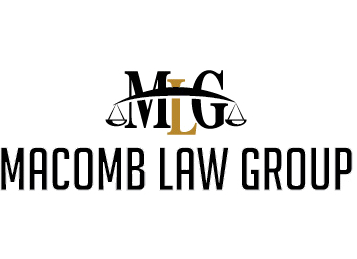If you have a home and a mortgage, you are likely required to keep a homeowner’s insurance policy. Even if you own your home outright, you may have kept your coverage to protect yourself from accidents around the house. But when would you need to file a claim? What does homeowner’s insurance cover? And when will you be on your own?
Many people sign up for homeowner’s insurance without fully understanding what they are paying for. Some banks or mortgage companies require certain minimum coverage of your home before they will close on the loan to purchase it. This can cause first-time homeowners to quickly sign up for a policy even if they think they’ll never need it. It turns out, your homeowner’s insurance policy may come in handy more often than you might imagine.
Most Michigan homeowner’s insurance policies are variations on a theme. The state Insurance Services Office, Inc. (ISO) created a standard policy in 2006, which includes two sections divided up into six coverages. Since then, most insurance carriers have used that standard language with minor tweaks and adjustments. For consumers shopping for policies, that means the devil is in the details. It also means that standard coverages are pretty universal statewide.
Homeowner’s Insurance Covers Property Damage to Your Home and Property
The reason your mortgage company wants you to get homeowner’s insurance is to protect it against property damage. Section I of your homeowner’s insurance policy covers physical damage to, destruction of, or loss of use of your:
- Home (the building itself)
- Other structures (including garages or sheds)
- Personal property (the things in your home and sometimes your car)
This can include a wide variety of unusual events. A few examples include:
- A tree falling and damaging the roof of your home
- Damage to a shed caused by a run-away lawn mower
- Destruction of clothing and personal effects in a fire
However, your homeowner’s insurance policy will also include a number of exclusions – things the insurance company will not pay for. One commonly frustrating example is that many homeowner’s insurance policies cover water damage caused by sewage back-ups, but not natural flood waters. Homeowners who live in areas with a high water table must usually buy a special “rider” to cover their property in case of flood.
Liability Insurance Protects You Against Negligence Lawsuits
Section II of your homeowner’s insurance comes into play when you (the insured) or someone you invite onto your property are injured because of negligence. It pays for medical expenses and certain other costs related to personal injury or illness that happened on your property.
The “insured” covered under the policy includes anyone specifically named in the policy as well as their spouses, family members living in the home, and children under age 21 under the care of someone else covered by the policy. Homeowner’s insurance benefits are also available when a friend, acquaintance, or visitor is injured in your home.
An example of liability insurance covers premises liability claims that result after a contractor is injured by exposed wires in your home. Since you, as the homeowner, have certain obligations to keep your home safe, when you invite a person into your home and they are injured by the exposed wires, you could be held liable. If you are sued, it is up to your insurance company to pay your legal fees in defending the case and pay any settlement or jury award up to the policy limits.
Homeowner’s Insurance Can Cover You Outside Your Home
It may sound strange, but you don’t actually have to be home for your homeowner’s insurance to cover damages done and harm caused. Your policy is limited by the types of accidental injuries and the time period, not the location. So with certain limited exceptions (such as damage to a motor vehicle), if your homeowner’s insurance policy applies, it doesn’t matter where the accident happens. This could include damage to a laptop or musical instrument in the back seat during a car crash or injuries caused by your child on the playground.
Get Help Filing a Homeowner’s Insurance Claim
A homeowner’s insurance policy can cast a wide net, covering property damage and bodily injury in a broad variety of cases. But that doesn’t mean the insurance carrier will make it easy to receive your benefits. Most insurance policies include lots of exclusions and limitations that can make it hard to know whether you are covered or not. It may seem like the insurance adjuster has gone out of their way to squeeze your case into one of those exclusions.
If you need help filing or collecting on a homeowner’s insurance claim, the personal injury attorneys at Macomb Law Group can help. Our experienced attorneys can help you understand the terms of your homeowner’s insurance policy and advocate on your behalf to get you the benefits you need to pay your bills or defend yourself in court. Contact us to schedule an initial consultation and get your claim started today.
Author
-

I began working in personal injury law more than 20 years ago, starting as a law clerk during my first year of law school at Wayne State University School of Law in Detroit. After passing the bar exam in 2002, I went on to become a partner at a series of law firms before opening the Macomb Law Group in 2017.
View all posts

